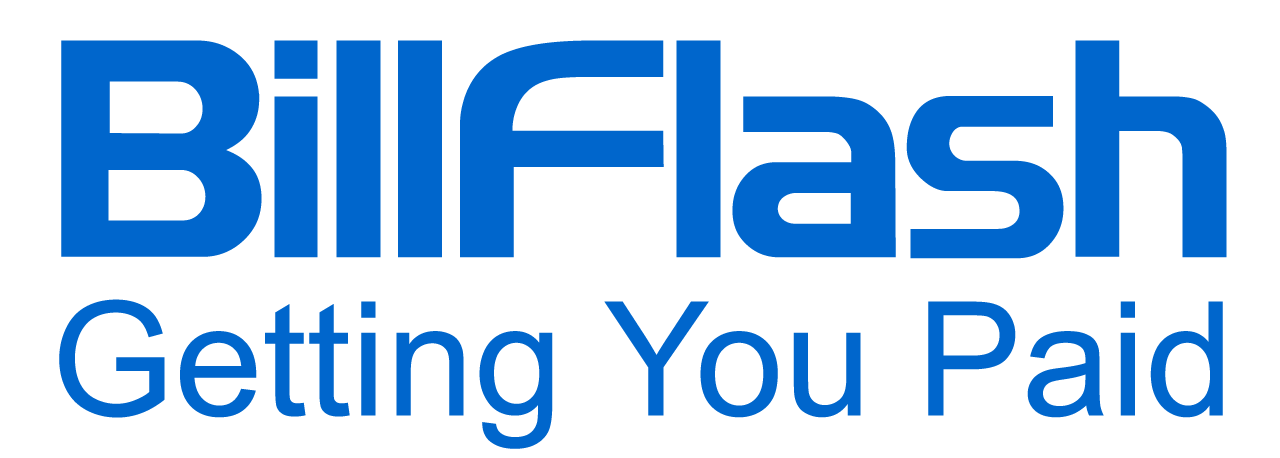Discover the benefits, types, and inner workings of a billing service in medical practices in this comprehensive guide.
In the world of healthcare, a billing service plays a crucial role in ensuring the smooth operation of healthcare providers. But what exactly are medical billing services and why are they so important? In this comprehensive guide, we will explore the definition, function, and benefits of medical billing services. We will also delve into the process of medical billing, the different types of services available, and provide tips for choosing the right one for your healthcare practice.
Understanding Medical Billing Services

Before we delve into the details, let's first understand what medical billing services are all about. Medical billing services refer to the process of submitting and following up on claims with health insurance providers to receive payment for healthcare services rendered. It is the bridge between healthcare providers and insurance companies, ensuring that healthcare providers receive the reimbursement they are entitled to.
Medical billing services play a vital role in the healthcare industry, acting as a liaison between healthcare providers and insurance companies. They handle the complex task of submitting claims, navigating insurance policies, and ensuring that healthcare providers receive the financial compensation they deserve for the services they provide.
But what exactly do medical billing services entail? Let's explore further.
Definition and Function of a Billing Service
Medical billing services involve the timely and accurate submission of claims to insurance companies on behalf of healthcare providers. These services encompass a wide range of tasks, including coding diagnoses and procedures, verifying insurance coverage, and preparing and submitting claims for reimbursement.
One of the primary functions of medical billing services is to facilitate the billing process and maximize the reimbursement for healthcare services provided. This requires a thorough understanding of medical coding, insurance policies, and regulations to navigate the complex world of healthcare billing.
Medical billers are trained professionals who possess in-depth knowledge of medical terminology, coding systems such as the International Classification of Diseases (ICD) and Current Procedural Terminology (CPT), as well as the intricacies of insurance billing. They ensure that claims are accurately coded and submitted in a timely manner, following the guidelines set by insurance companies.
Additionally, medical billing services also involve following up on claims, addressing any issues or denials, and advocating for healthcare providers to receive proper reimbursement. This can include appealing denied claims, providing additional documentation, or negotiating with insurance companies to resolve disputes.
By outsourcing medical billing services, healthcare providers can focus on what they do best – providing quality patient care – while leaving the complex and time-consuming task of billing to the experts.
The Importance of Medical Billing in Healthcare
Medical billing is a critical component of the healthcare system, as it directly affects the financial well-being of healthcare providers. Efficient and accurate medical billing services are essential for the sustainability and success of healthcare practices.
By outsourcing medical billing services, healthcare providers can streamline their revenue cycle and optimize their financial operations. This allows them to allocate more time and resources to patient care, ultimately improving the overall quality of healthcare services.
Efficient medical billing services not only streamline the billing process but also help minimize claim denials and payment delays. Medical billers diligently review claims for errors, ensuring that all necessary information is included and coded correctly. This attention to detail significantly reduces the likelihood of claim denials and subsequent delays in payment.
Furthermore, medical billing services stay up-to-date with the ever-changing landscape of insurance policies and regulations. They possess the knowledge and expertise to navigate the complexities of insurance billing, ensuring that healthcare providers remain compliant and receive the maximum reimbursement for their services.
In conclusion, medical billing services are an integral part of the healthcare industry. They provide healthcare providers with the necessary support to navigate the complex world of insurance billing, optimize their revenue cycle, and ultimately focus on what matters most – delivering exceptional patient care.
The Process of Medical Billing

Now that we have a clear understanding of medical billing services, let's take a closer look at the step-by-step process involved in medical billing.
Medical billing is a complex and intricate process that requires attention to detail and a thorough understanding of healthcare regulations and insurance policies. It plays a crucial role in ensuring that healthcare providers receive proper reimbursement for the services they provide.
Patient Registration and Verification
The first step in the medical billing process is patient registration and verification. This is where the journey begins for both the patient and the healthcare provider. During this step, the patient provides all necessary information, such as personal details, insurance coverage, and demographic information.
Accurate and up-to-date patient information is crucial for successful billing and reimbursement. It helps healthcare providers determine the patient's eligibility for insurance coverage and ensures that the correct insurance information is used when submitting claims.
Additionally, patient registration and verification involve confirming the patient's identity and ensuring that they are not using someone else's insurance or providing false information. This step helps prevent fraud and ensures that the billing process is conducted ethically and legally.
Medical Coding and Charge Entry
After patient registration, medical coders come into play. These highly skilled professionals assign appropriate medical codes to the services provided. Medical coding is a standardized system that ensures uniformity and accuracy in documenting healthcare services.
Medical codes are alphanumeric representations of diagnoses, procedures, and treatments. They provide a common language for healthcare providers, insurance companies, and government agencies to communicate and understand the services rendered.
Once the coding is complete, the charges are entered into the billing system. This step involves meticulously recording the services provided, along with their corresponding codes and costs. The accuracy of charge entry is crucial, as it forms the basis for claim submission and reimbursement.
Claim Submission and Follow-up
Once the charges are entered, the claims are submitted to the respective insurance companies. This can be done electronically or through paper submission, depending on the preferences and capabilities of the healthcare provider and the insurance company.
Timely and accurate claim submission is essential to avoid payment delays and claim denials. Insurance companies have specific guidelines and deadlines for claim submission, and any delay or error can result in the claim being rejected or delayed.
After submission, medical billers continuously follow up on the status of the claims. They ensure that the claims are being processed and reimbursed in a timely manner. This involves communicating with insurance companies, providing any additional documentation or information they may require, and advocating for the healthcare provider's interests.
Follow-up is a crucial part of the process, as it helps resolve any discrepancies that may arise during claim processing. It ensures that the healthcare provider receives the rightful reimbursement for the services provided to maintain a healthy cash flow.
Types of Billing Services
Now that we understand the process of medical billing, let's explore the different types of medical billing services available.
In-house vs. Outsourced Medical Billing
The first distinction to consider is whether to handle medical billing in-house or outsource it to a specialized medical billing service. In-house billing involves hiring and training a dedicated billing team within the healthcare practice, while outsourcing involves partnering with a third-party service provider. Each option has its pros and cons, and the decision depends on factors such as the size of the practice, level of expertise required, and cost considerations.
Specialized Billing Service
In addition to the choice between in-house and outsourced billing, there are specialized services available that cater to specific areas. These services have expertise in various fields, ensuring accurate coding and claim submission for the specific requirements of that specialty. Examples include dental billing services, mental health billing services, and orthopedic billing services.
Benefits of Using a Medical Billing Service
Increased Revenue and Cost Efficiency
One of the primary benefits of using a medical billing service is the potential for increased revenue. These services have the expertise to maximize reimbursement by accurately coding and submitting claims, reducing claim denials, and ensuring timely payment. Moreover, outsourcing medical billing eliminates the need for expensive billing software and hiring and training billing staff. This leads to cost savings and improved cost efficiency for healthcare practices.
Improved Patient Satisfaction
Efficient and accurate medical billing services contribute to improved patient satisfaction. By outsourcing the process, healthcare providers can focus on delivering quality patient care and spend more time with their patients. Patients also benefit from the clarity and accuracy of billing statements, which can lead to higher patient satisfaction and loyalty.
Choosing the Right Medical Billing Service

Now that we understand the benefits of using a service, let's discuss how to choose the right one.
Factors to Consider
When selecting a medical billing service, several factors need to be considered. These include the expertise and experience of the service provider, the services offered, pricing structure, and the ability to integrate with your existing practice management system. It is essential to assess the specific needs of your practice and match them with the capabilities of the provider.
Questions to Ask Potential Providers
To determine the suitability of a medical billing service, it is crucial to ask the right questions. Some key questions to consider include the types of healthcare providers they specialize in, their average reimbursement rate, their claim denial rate, and their track record in claim follow-up. Additionally, you may want to inquire about their data security practices and the level of support provided to your practice.
By carefully considering these factors, you can choose a billing service that aligns with your practice's goals.
Medical billing services are an essential component of the healthcare system. They ensure accurate billing, timely reimbursement, and increased revenue for healthcare providers. By understanding the process and benefits of billing services, healthcare practices can optimize their revenue cycle. So, if you want to streamline your billing process and improve your practice's financial health, consider partnering with a reputable medical billing service provider.
Going Forward with BillFlash
With BillFlash, practices can go further by optimizing their revenue cycle, efficiently collecting past-due A/R, and providing patients with a convenient and secure payment experience. With a user-friendly interface and industry experts available for all your billing, payments and collections needs, BillFlash is the perfect solution for small practices.

